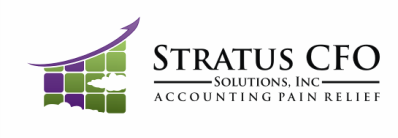If you move to the US you’ll want to cease your Canadian residency to avoid double taxation on your personal income. However, ceasing your Canadian residency triggers a CRA concept of “Deemed Disposition.”
CRA “deems” that you have disposed of all of your assets on the last day of your Canadian residency. Here’s why this is a problem.
Imagine you have just closed a Series A with a $10 million valuation and you own 30 per cent of the company. The CRA will require you to recognize capital gains on your 30 per cent ownership on the last day of your residency. You will owe capital gain taxes on a capital gain that you have not realized.
The first issue is that you have not realized the capital gain and likely will not have the cash to pay the taxes. You might be able to work out an arrangement where part of your shares are pledged as collateral. If so, the tax bill is recorded against your name but not payable until you have disposed of the shares.
The second issue is the issue of “what-ifs”.
What if your company fails? You tax liability is not forgiven. What if your company is acquired for less than $10 million? Your tax liability is not decreased. Looking for an upside? If your company is acquired for more than $10 million: CRA has no claim to additional capital gain taxes.
And the third issue, when you do realize your capital gain, you may have double taxation by both the IRS and the state that you move to.
What can you do about this? Before moving to the US, obtain board resolutions whereby the following occurs:
CRA “deems” that you have disposed of all of your assets on the last day of your Canadian residency. Here’s why this is a problem.
Imagine you have just closed a Series A with a $10 million valuation and you own 30 per cent of the company. The CRA will require you to recognize capital gains on your 30 per cent ownership on the last day of your residency. You will owe capital gain taxes on a capital gain that you have not realized.
The first issue is that you have not realized the capital gain and likely will not have the cash to pay the taxes. You might be able to work out an arrangement where part of your shares are pledged as collateral. If so, the tax bill is recorded against your name but not payable until you have disposed of the shares.
The second issue is the issue of “what-ifs”.
What if your company fails? You tax liability is not forgiven. What if your company is acquired for less than $10 million? Your tax liability is not decreased. Looking for an upside? If your company is acquired for more than $10 million: CRA has no claim to additional capital gain taxes.
And the third issue, when you do realize your capital gain, you may have double taxation by both the IRS and the state that you move to.
What can you do about this? Before moving to the US, obtain board resolutions whereby the following occurs:
- A reputable accounting firm’s tax accountants are engaged to prepare documentation to be used in the event you encounter issues with any of the tax agencies. This work includes documentation of the tax treaties between both Canada, the US, and the state that you will be moving to. Likely, this will cost in excess of $10K.
- Based on the tax accountant’s documentation, have a board resolution that puts aside enough cash into an escrow account to cover any potential incremental tax bills you may have as a result of this move. For example, if CRA disallows your lifetime capital gains exemption. Or if there is not a tax treaty with the state. Setting aside cash in escrow, preserves cash in the company to be available in the future if needed.

 RSS Feed
RSS Feed
